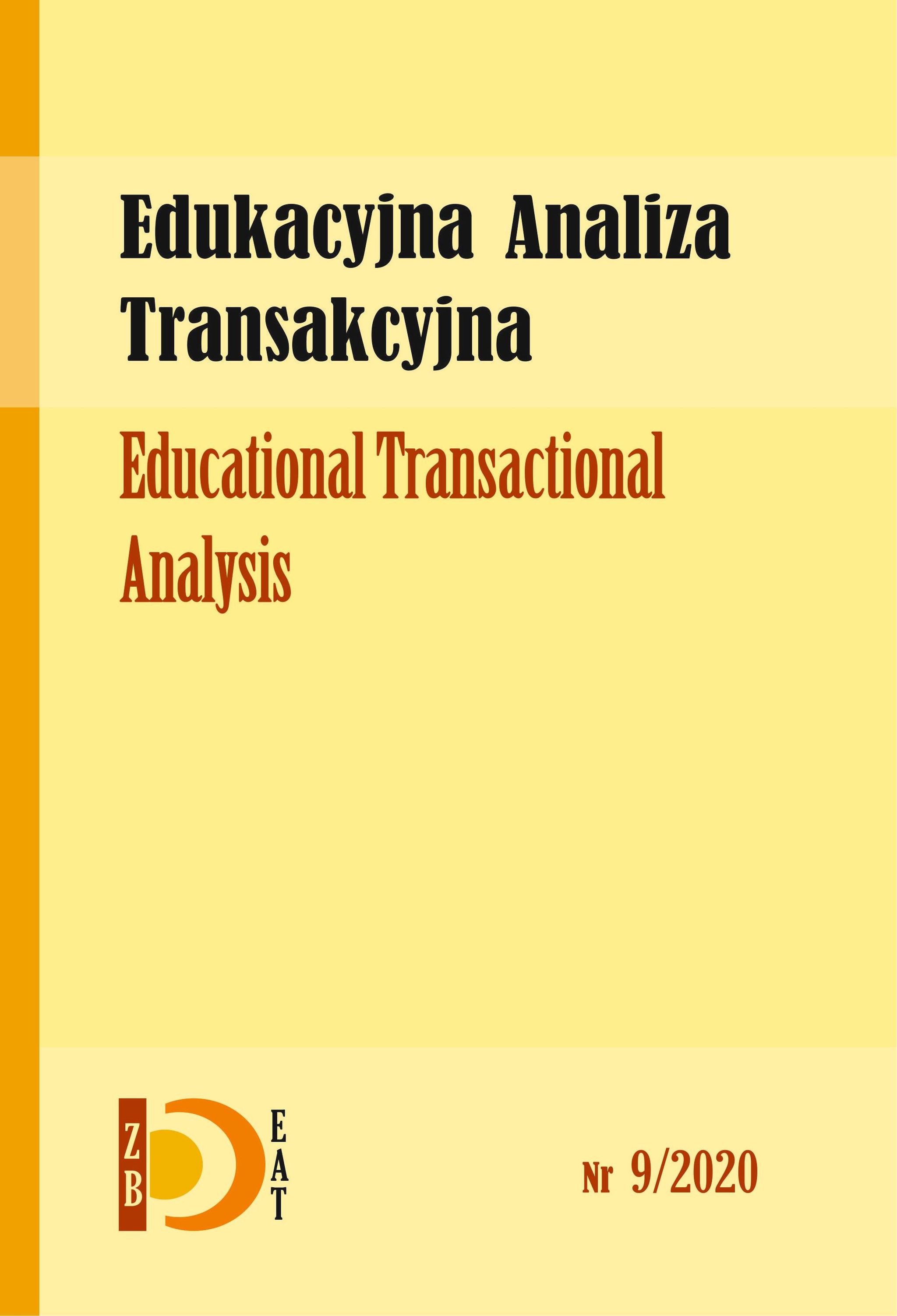Modern mathematics teaching with the use of computer-based tasks - reality or myth?
- Authors
-
-
Monika Czajkowska
a:1:{s:5:"pl_PL";s:34:"The Maria Grzegorzewska University";}
-
- Keywords:
- mathematics teachers, IT, modern teaching, mathematics tasks
- Abstract
-
In this article, I present partial results of my research, conducted as part of the project entitled Introducing students aged 12-17 to solving computer-based tasks.
Research shows that the vast majority of teachers are merely pretending to conduct modern teaching when making use of computer-based tasks during mathematics lessons. In reality, their lessons are typical and conservative, dominated by frontal work and methods based on knowledge transfer. Most often, lessons feature selected-response questions used to verify the student's knowledge, rarely implementing tasks which require the student to experiment by making use of a computer screen. This situation is caused by multiple factors, including: teachers' views on the place and role of using IT resources for teaching mathematics, insufficient number of computers, tablets, and smartphones in schools, not enough computer-based mathematical tasks with a significant didactic value, insufficient competence of teachers, outdated external exam system, incorrect teacher evaluation system.
- Downloads
-
Download data is not yet available.
- Author Biography
- References
-
Balcer A. & Wojnarowska A. (2016). „Młodzi podłączeni i połączeni”. Internet jako cyfrowe podwórko współczesnej młodzieży. In E. Janicka-Olejnik, K. Klimek (Eds.) Dzieci i młodzież w świecie technologii cyfrowej (pp. 29-44). Łódź: Wydawnictwo Akademii Humanistyczno-Ekonomicznej.
Bąk A. (2015). Korzystanie z urządzeń mobilnych przez małe dzieci w Polsce. Wyniki badania ilościowego. Warszawa: Fundacja Dzieci Niczyje. https://fdds.pl/kategoria_bazy/raporty-z-badan/
Bednarek J. (2006). Multimedia w kształceniu. Warszawa: PWN.
Czajkowska, M., Grochowalska, M. & Orzechowska M. (2015). Potrzeby nauczycieli edukacji wczesnoszkolnej i nauczycieli matematyki w zakresie rozwoju zawodowego. Warszawa: Instytut Badań Edukacyjnych. http://eduentuzjasci.pl/publikacje-ee-lista/raporty/239-raport-z-badania/badania-potrzeb-nauczycieli-edukacji-wczesnoszkolnej-i-nauczycieli-matematyki-w-zakresie-rozwoju-zawodowego-bpn/1241-badania-potrzeb-nauczycieli-edukacji-wczesnoszkolnej-i-nauczycieli-matematyki-w-zakresie-rozwoju-zawodowego-bpn.html
Czajkowska M. (2016a). What strategies are used by middle school students while solving mathematical tasks in a digital form International Journal of Pedagogy, Innovation and New Technologies 2016; 3 (2): 102-109.
Czajkowska M. (2016b). To what extent can a computer replace geometrical solid model manipulation? (on certain aspects of teaching spatial geometry in middle school). In. Maj-Tatsis B., Pytlak M., Swoboda E. (Eds.) Inquiry based mathematical education (pp.232-242). Rzeszów: Wydawnictwo Uniwersytetu Rzeszowskiego.
Dolata R. i Sitek M. (Eds.) (2015). Raport o stanie edukacji 2014. Egzaminy zewnętrzne w polityce i praktyce edukacyjnej. Warszawa: Instytut Badań Edukacyjnych.
Kowalik-Conder A. (2017). Rozwijanie umiejętności uczenia się z zastosowaniem technologii informacyjno-komunikacyjnych w liceum-wyniki badań. In: Morbitzer J., Morańska D., Musiał E. (Eds.) Człowiek, media, edukacja. Dąbrowa Górnicza: Wyższa Szkoła Biznesu w Dąbrowie Górniczej.
Morbitzer J. (2011). Odpowiedzialność jako kategoria aksjologiczna w świecie współczesnych mediów. In: Lewowicki T. Sieminiecki B. (Eds.) Technologie edukacyjne –tradycja. Współczesność. Przewidywana przyszłość. (pp. 47-59). Toruń: Wydawnictwo Adam Marszałek.
Niemierko B. (1999). Pomiar wyników kształcenia. Warszawa: WSiP.
Polcyn S. (2016). Gry komputerowe – szansa czy zagrożenie? Polemika pomiędzy destruktywnym a konstruktywnym wpływem gier komputerowych na adolescentów. In E. Janicka-Olejnik, K. Klimek (Eds.) Dzieci i młodzież w świecie technologii cyfrowej. (pp. 29-44). Łódź: Wydawnictwo Akademii Humanistyczno-Ekonomicznej.
Rybak A. (2011). Tradycyjne i nowoczesne środki w edukacji. In: Lewowicki T. & B. Siemieniecki Technologie edukacyjne - tradycja, współczesność, przewidywana przyszłość (pp. 117-128). Toruń: Wydawnictwo Adam Marszałek.
Wawrzak¬ Chodaczek, M. (2012): Rola gier komputerowych w czasie wolnym młodzieży w wieku adolescencji, Chowanna 2, 237-252.
Zalecenie Rady z dnia 22 maja 2018 r. w sprawie kompetencji kluczowych w procesie uczenia się przez całe życie (2018/C 189/01) https://eur-lex.europa.eu/legal-content/PL/TXT/PDF/?uri=CELEX:32018H0604(01)&from=EN
- Downloads
- Published
- 2020-12-30
- Issue
- No. 9 (2020)
- Section
- On the border of fields
- License
-
Copyright (c) 2020 Monika Czajkowska

This work is licensed under a Creative Commons Attribution 4.0 International License.
AUTHOR'S STATEMENT
I am aware that the Educational Transactional Analysis journal is published under a Creative Commons license - Attribution (https://creativecommons.org/licenses/by/4.0/legalcode).
By submitting the article, I agree to make it available under this license
How to Cite
Similar Articles
- Bogumiła Bobik, Happiness and hope in the consciousness of the young generation - analysis of perception and experience , The Educational Transactional Analysis: No. 14 (2025)
- Małgorzata Biszczuk, mgr, STEM project for secondary school teachers – pedagogical innovation with new technologies at school , The Educational Transactional Analysis: No. 7 (2018)
- Bożena Uścińska, mgr, Nauczycielskie okopy Świętej Trójcy , The Educational Transactional Analysis: No. 1 (2012)
- Anna Zamkowska, Piotr Nogaj, Cooperation of Special Education Teachers with the General Teacher in Primary Schools. A Survey of Polish Teachers , The Educational Transactional Analysis: No. 13 (2024)
- Bolesław Niemierko, prof. dr hab., Analiza transakcyjna jako metoda diagnostyki edukacyjnej , The Educational Transactional Analysis: No. 2 (2013)
- Magdalena Wójcik, Preventive and educational support for students with special educational needs in an inclusive education as perceived by teachers , The Educational Transactional Analysis: No. 13 (2024)
- Marta Ewa Niemiec, Determinants of functional diagnosis and strategies of work in school relations with students with diverse educational needs - in the opinions of teachers and students of special education , The Educational Transactional Analysis: No. 13 (2024)
- Tomasz Prauzner, Kacper Prauzner, Didactic dimension of electroencephalographic research in terms of educational transactional analysis. , The Educational Transactional Analysis: No. 10 (2021)
- Joanna Miecznik-Warda, Polish Educational Needs of Young Educators in the Context of Transactional Educational Hungers and in Relation to Professional Personality Types , The Educational Transactional Analysis: No. 13 (2024)
- Tomasz Prauzner, Kacper Prauzner, Application of assumptions of educational transactional analysis in constructivist learning theory. , The Educational Transactional Analysis: No. 9 (2020)
You may also start an advanced similarity search for this article.


